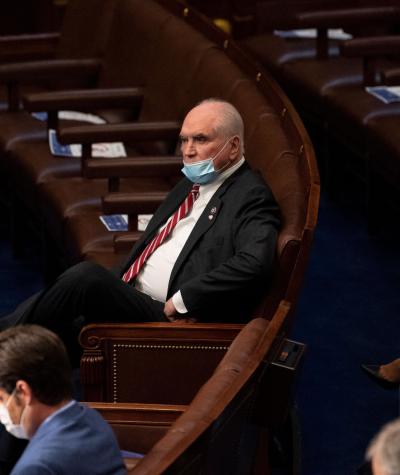In the first congressional insider trading investigation to become public in recent history, the Office of Congressional Ethics (OCE) found evidence that the day after Rep. Mike Kelly (R-PA) received nonpublic information about Cleveland-Cliffs Inc., a company based in his district, his spouse bought stock in that same company.
By the time Kelly’s spouse, Victoria, sold the stock, it had increased in value by nearly 400%. The facts surrounding Kelly’s stock trades are remarkable in the appearance of the use of inside information for personal financial gain.
When members of Congress trade stocks on information gained in their official capacities, they do not just break the law. They also decrease the public’s trust because they appear to act for their own financial interests and not the public’s interest.
In March 2018, the Department of Commerce instituted tariffs on imports of certain electrical steel components, which benefitted Cleveland-Cliffs, a steel manufacturer in Kelly’s district.
By March 2020, Cleveland-Cliffs was in danger of closing its plant because foreign steel producers were allegedly using a loophole to avoid the tariffs. As a result, Kelly led an effort to lobby then-President Donald Trump and Secretary of Commerce Wilbur Ross, to investigate violations of the tariff.
The OCE’s investigation found that on April 28, 2020, Ross privately disclosed to Kelly that the investigation would occur, which meant that Cleveland-Cliffs would not have to close.
On April 29, 2020, before the May 4 public announcement of the investigation, Mrs. Kelly purchased between $15,001 and $50,000 in Cleveland-Cliffs. The stock was $4.70 per share at time of purchase and $18.11 per share at the time she sold in January 2021.
Members of Congress are expected to take official actions to support businesses that employ their constituents, but they are not expected to profit from strategic stock trades resulting from those official actions.
To ensure the public’s trust, elected officials should not engage in activity that even gives the appearance of a conflict of interest.
Rep. Kelly went beyond the appearance of a conflict when he pushed for the Department of Commerce to rescue a specific company in financial trouble and then purchased stock in that company before the imminent rescue was publicly known.
Pursuant to House rules, a member may “[n]ever use any information coming to him confidentially in the performance of governmental duties for making private profit.” The STOCK Act affirms that “Members of Congress and employees of Congress are not exempt from the insider trading prohibitions arising under the securities laws.”
As elected officials craft laws that directly impact the lives of Americans and engage in efforts that impact jobs and the economy, voters have a right to know whether their representatives’ actions are being undertaken in the interest of the wider public, or in the personal financial interests of that official.
If members violate the STOCK Act and use their office for personal gain, they must be held accountable.


